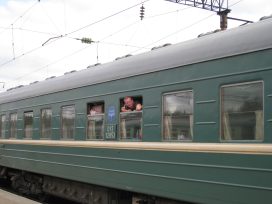
A 30-hour train journey from Vienna to Moscow offers the chance to connect with the Russian past: contraband, bribery and all. Alexei Korolyov returns to the place of his birth.

A 30-hour train journey from Vienna to Moscow offers the chance to connect with the Russian past: contraband, bribery and all. Alexei Korolyov returns to the place of his birth.
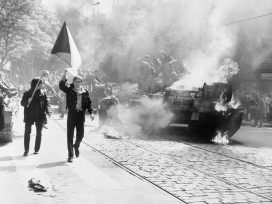
Fifty years ago, Warsaw Pact forces led by the Red Army invaded Czechoslovakia. The socialist reforms of the Prague Spring were suppressed and Czechoslovakia was subjected to more than 20 years of stultifying ‘normalization’ under Soviet occupation. Revisiting his essay of 10 years ago, Ukrainian writer Mykola Riabchuk explains why his solidarity with the victims endures.
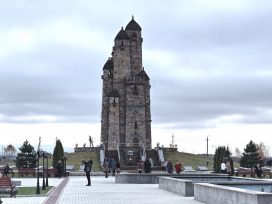
The memory of Stalin’s Terror is now receiving more attention in Russia than at any time since the 1980s. However, the scope of the debate needs to be widened still further, argues Daria Khlevnyuk.

The feminist cause is the cause of civilization and, at the same time, is now a cultural trend, writes Aloma Rodríguez. She calls on us to embrace its heterogeneity: there is – and should be – room for many different points of view to co-exist.
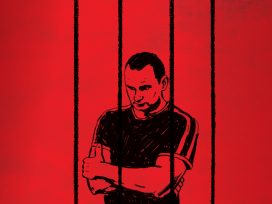
Oleg Sentsov’s hunger strike has reached a critical stage. Sentsov is calling for the release of all Ukrainians imprisoned in Russia on political grounds. The human rights initiative OVD-Info, in collaboration with the Memorial Centre, has compiled documentation on the 88 prisoners, most of whom are from Crimea.

China’s digital Social Credit Systems operate a form of gamified control, rewarding users while rating them according to online and offline behaviour. By 2020, the Chinese government plans to introduce a nationwide system. Western observers are appalled, but are our own social media essentially all that different?
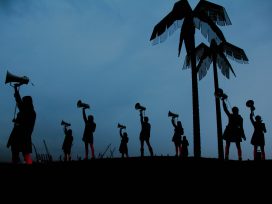
Critique of social media tends to focus on the content of online discourse, particularly the impacts of fake news and hate speech. But how do social media platforms themselves determine interaction, and how can users adapt to default functionalities in the interests of constructive debate?
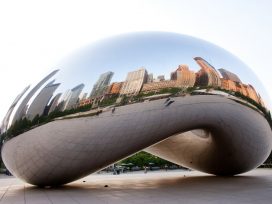
The ties between liberalism and democracy are under strain, challenged by self-styled illiberal ideologues from Budapest to Washington DC, and by the liberal-economic but undemocratic example of China. Romanian economist Daniel Dăianu makes the case for liberalism, and why it is worth fighting for if democracy is to thrive.
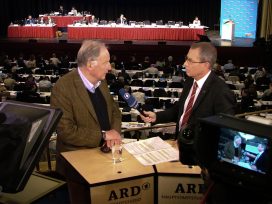
Germany’s altered party landscape is the culmination of the misfit between political centrism and the national-conservative groundswell catalysed by the refugee wave of 2015–16. Not only does the AfD pose major challenges to the other parties, it throws up uncomfortable questions about the role of the media in the dynamics of polarization.

Cultural journals have played a crucial role in the formation of the public spheres in Europe and beyond. Yet their future form and sustainability is by no means clear. Looking at journals’ history helps understand where they are headed. Introducing a new Eurozine focal point in collaboration with the Working Group on Periodicals Research.

Struggle in the street was combined with otherworldly utopias in the low budget, small circulation architectural magazines of the 1960s and 1970s. Free of the constraints of finance and convention, the genre served as an international platform for experimental design and discourse and was instrumental in the progress of architectural modernity.

Ord&Bild, Sweden’s oldest cultural journal, first appeared in 1892. Speaking at the 125th anniversary event in Gothenburg on 4 November 2017, long-time contributor Sven-Eric Liedman recalls Ord&Bild’s programme and personnel between the counter-cultural revolution of the 60s and the neoliberal revolution of the 1980s.
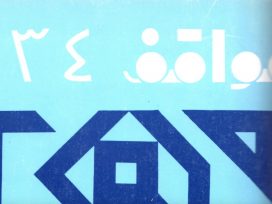
The Lebanese journal ‘Mawaqif’, published in various incarnations between 1968 and 1994, was one of the leading cultural journals of the Arab World. Its seventy-four issues reflect the intellectual upheavals brought by the Six-Day War, the Lebanese Civil War, and the Iranian Revolution, as well as far-reaching processes of modernization in Arab literary culture.
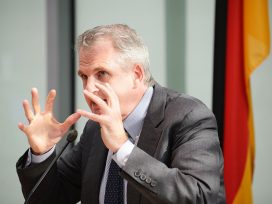
In ‘The Road to Unfreedom’, historian Timothy Snyder traces the intellectual roots of modern authoritarianism in Russia and how its influence has spread, not least in the West. In the following exchange, three east-central European scholars, brought together by ‘Razpotja’, critique Snyder’s new book – and Snyder responds.

From its libertarian origins to the big-data economy of the present, the internet has always oscillated between openness and control, liberty and domination, free-to-use and free enterprise. A brief chronology of the internet reveals a dynamic of power relationships that will continue to define how we interact with online technologies.
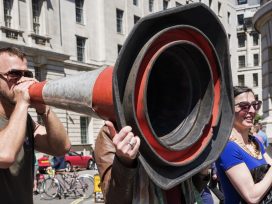
With populist politicians seemingly in the ascendant across the world, how have political theorists responded – and what lessons should they learn? Raffaella Baritono of the Italian journal ‘Il Mulino’ asks Michael Freeden, one of the pre-eminent theorists of liberalism, for his take on the current crisis not just of politics, but of political theory.